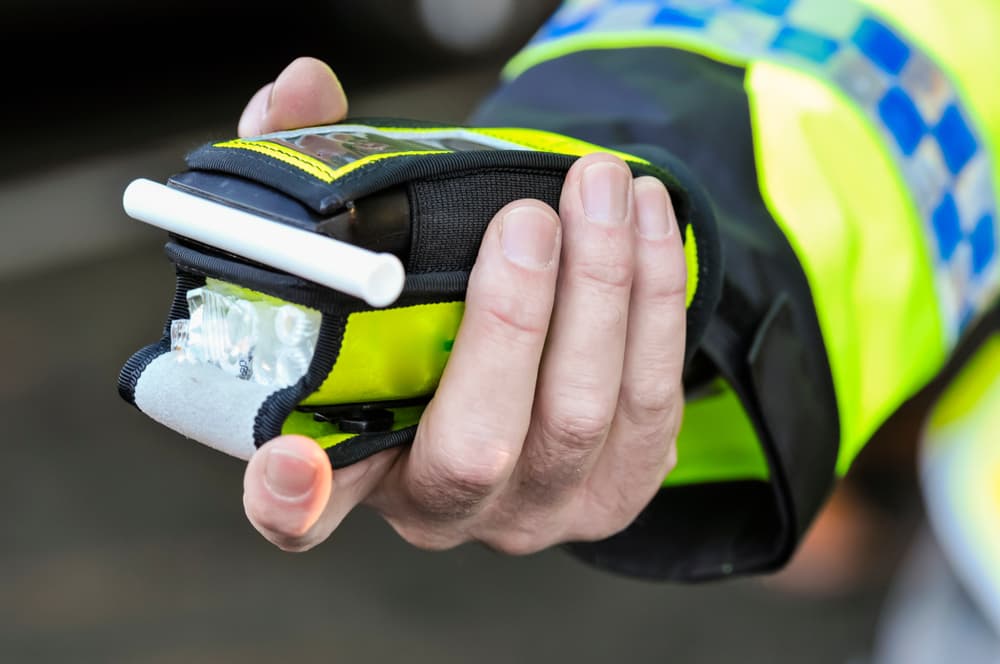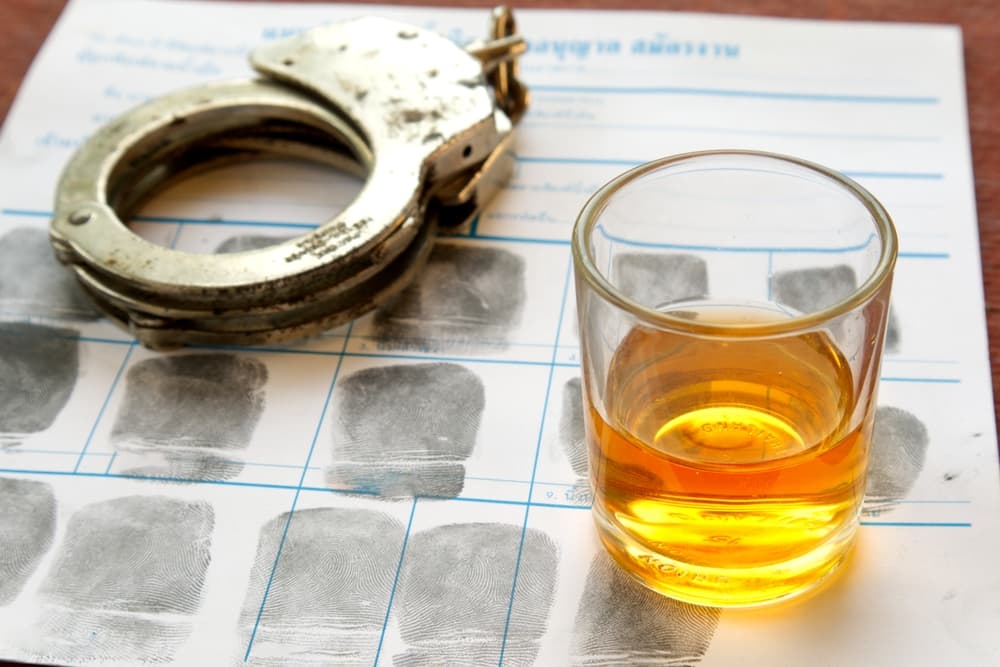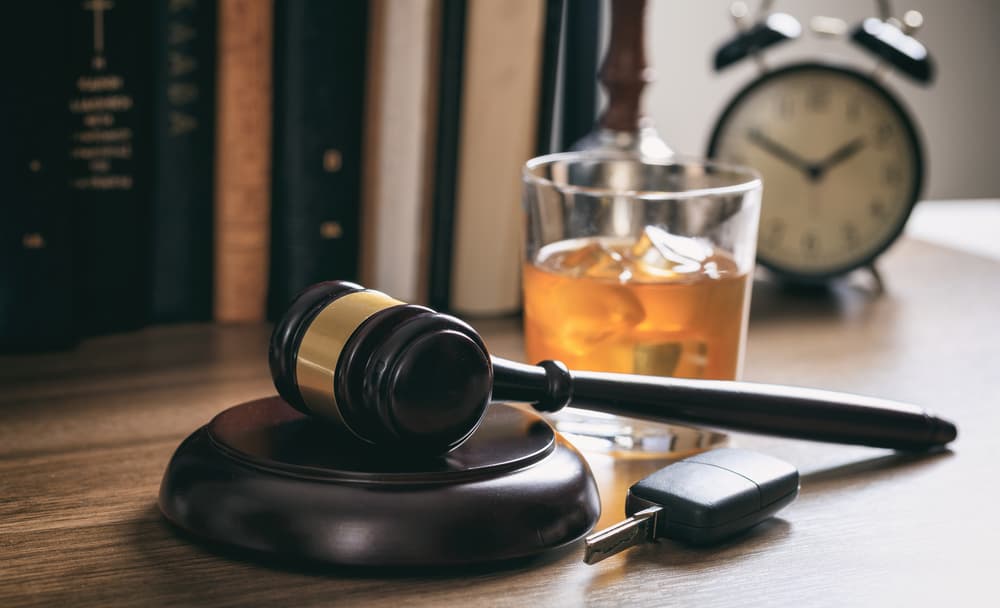
Refusing a breath test during a traffic stop for driving under the influence (DUI) can lead to various consequences, depending on the jurisdiction where the stop occurs. In some cases, the driver may lose their license, and they may face additional penalties if they ultimately sustain a DUI conviction.
If you currently face a criminal charge or arrest for DUI, speak with an experienced DUI defense attorney right away. Your lawyer can determine your legal options and develop a plan of action for your case right away. Your lawyer can also safeguard all of your legal and constitutional rights.
Potential Consequences of Refusing to Take a Breath Test
Refusing a breath test can lead to serious consequences in certain states. When a driver is pulled over under suspicion of DUI, law enforcement officers may request a breath test to measure the driver’s blood alcohol concentration (BAC).
However, refusing to submit to a breath test can result in administrative penalties and legal ramifications.
One potential consequence of refusing a breath test is the automatic suspension of the driver’s license. In many states, including South Carolina, an implied consent law means that when obtaining a driver’s license, individuals agree to submit to chemical tests if suspected of DUI.

Refusing to comply with this agreement can result in an immediate driver’s license suspension, regardless of whether the court convicts the driver of DUI.
Additionally, refusing a breath test can weaken the driver’s defense in a DUI case. While the absence of a breath test may make it more difficult for prosecutors to prove DUI charges beyond a reasonable doubt, it can also provide evidence of guilt or consciousness of guilt.
State prosecutors may argue that the driver refused the test because they knew they were intoxicated and wanted to avoid incriminating themselves.
Furthermore, refusing a breath test can lead to additional penalties if the court convicts the driver of DUI. In some states, including South Carolina, refusal to submit to a breath test can result in enhanced penalties, such as longer license suspensions, higher fines, and mandatory participation in alcohol education or treatment programs.
Moreover, refusing a breath test may not prevent law enforcement from obtaining evidence of intoxication through other means.
Officers may seek a warrant to conduct a blood test, which can provide more accurate BAC results than a breath test. Additionally, prosecutors can use the refusal to submit to a breath test against the driver in court as evidence of consciousness of guilt, potentially leading to harsher penalties upon conviction.
What Is a DUI?
In criminal cases involving a DUI, the prosecution must establish certain legal elements to prove the offense. The state prosecutor must establish all of these elements beyond a reasonable doubt to secure a conviction.
First, one key element of a DUI case is the operation of a motor vehicle. This means that the accused individual (or defendant) must have physically controlled a vehicle while under the influence of alcohol or drugs. The operation can include driving the vehicle on a public road, as well as sitting in the driver’s seat with the keys in the ignition – even if the vehicle is stationary.
Secondly, the prosecution must establish that the defendant was under the influence of alcohol or drugs at the time of operating the vehicle. This typically involves presenting evidence of impairment, such as erratic driving, slurred speech, or failed field sobriety tests.
Chemical tests, such as breath, blood, or urine tests, may also be used to measure the defendant’s blood alcohol concentration (BAC) or detect the presence of drugs in their system.
Additionally, the prosecution must demonstrate that the defendant’s ability to operate the vehicle safely was impaired by alcohol or drugs. Prosecutors can show this through evidence of erratic driving behavior, such as swerving, speeding, or failing to obey traffic signals. Testimony from law enforcement officers, eyewitnesses, or expert witnesses may also be used to establish impairment.
Moreover, in some jurisdictions, the prosecution must prove that the defendant knew about their impairment at the time of driving. Prosecutors can demonstrate this through statements that the defendant made, observations of their behavior, or other circumstantial evidence indicating their awareness of being under the influence.
If the state prosecutor can prove each of these legal elements beyond a reasonable doubt – or beyond a doubt, based upon ordinary common sense and reason – they can secure a conviction against the defendant.
Potential Penalties for a DUI Conviction

In many DUI cases, the potential penalties upon conviction can be severe and will vary depending on the circumstances of the offense and any prior DUI convictions on the defendant’s record. These penalties typically include fines, license suspension, mandatory alcohol education or treatment programs, and, in some cases, jail time.
First, individuals convicted of DUI may face substantial monetary fines. The amount of the fine imposed can vary based on the defendant’s BAC level, whether any aggravating circumstances exist, and whether there are any prior DUI convictions on the defendant’s record.
Secondly, a DUI conviction often results in a suspension of the defendant’s driver’s license. The length of the license suspension can range from several months to several years, depending on the severity of the offense and any prior DUI convictions. During the suspension period, the defendant may need to use an ignition interlock device (IID) to regain driving privileges.
Additionally, individuals convicted of DUI may need to participate in mandatory alcohol education or treatment programs. These programs address issues related to alcohol abuse and dependency and the court may require them as a condition of probation or license reinstatement.
Moreover, in cases where the defendant’s BAC level significantly exceeded the legal limit – or where the court found certain aggravating circumstances, such as causing injury or property damage – they may face jail time. The length of the jail sentence can vary based upon the severity of the offense and any prior DUI convictions.
Furthermore, individuals convicted of DUI may face other collateral consequences, such as increased insurance premiums, difficulty obtaining employment or housing, and damage to their reputation and personal relationships.
An experienced criminal defense lawyer will do everything possible to help you avoid a DUI conviction. However, if you ultimately incur a conviction for DUI, your attorney can represent you during a sentencing hearing in court and argue for the lightest possible penalty on your behalf.
Potential Defenses to a Criminal DUI Charge
When facing a DUI charge, lawyers may use several common legal defenses to challenge the allegations and seek a favorable outcome in court.
First, one common defense is to challenge the validity of the traffic stop. Law enforcement officers must have reasonable suspicion or probable cause to stop a vehicle.
If police stop the car without proper justification, a judge in court may suppress any evidence obtained thereafter – including chemical test results or observations of impairment.
Secondly, individuals may challenge the results of field sobriety tests (FSTs) or chemical tests, such as breath, blood, or urine tests. Various factors, including environmental conditions, medical conditions, and improper administration by law enforcement officers, can make these tests inaccurate.
Challenging the reliability and accuracy of test results can weaken the prosecution’s case and raise doubts about the defendant’s level of impairment.
Additionally, individuals may challenge the legality of the arrest and questioning procedures. Law enforcement officers must adhere to certain protocols when conducting DUI investigations, including advising individuals of their rights under Miranda v. Arizona.
If police violated the defendant’s rights during the arrest or questioning process, the court may suppress any evidence obtained as a result.
Moreover, individuals may argue that their conduct was not consistent with impairment by alcohol or drugs. This can include presenting evidence of alternative explanations for observed behavior, such as fatigue, illness, or nervousness.
Providing credible explanations for behavior consistent with impairment can cast doubt on the prosecution’s case and raise questions about the defendant’s guilt.
Furthermore, individuals may assert a lack of probable cause for arrest or insufficient evidence to support the DUI charge. Prosecutors must prove each element of the offense beyond a reasonable doubt, including impairment and operation of a motor vehicle. If evidence cannot establish these elements, the court may dismiss the charge or acquit the defendant.
An experienced criminal defense attorney in your jurisdiction can help you during every stage of your DUI case. Specifically, your lawyer can review the circumstances of your arrest with you and determine if you may raise one or more of these legal defenses in court.
If so, your lawyer can aggressively represent you at trial and pursue a not-guilty verdict in your case. Your attorney will also work to protect your rights throughout the entire legal process.
Potential Outcomes of a DUI Case

A DUI charge can resolve in many ways. These options include plea deals, probation, taking the case to trial, and participation in diversionary programs.
One option for resolving a DUI case is through a plea deal negotiated between the defendant and the prosecution. In a plea deal, the defendant may agree to plead guilty to a lesser charge (such as reckless driving) or accept a reduced sentence in exchange for avoiding a trial and the uncertainty of a jury verdict.
Plea deals can result in a quicker resolution to the case and may offer favorable terms for the defendant.
Another option is probation, where the defendant may remain in the community under the supervision of a probation officer instead of serving jail time. Probation typically involves abstaining from alcohol, attending counseling or treatment programs, and regular check-ins with a probation officer. Violating the terms of probation can result in additional penalties, including incarceration.
Some defendants may choose to take their DUI case to trial and contest the charges against them.
At trial, the prosecution must prove each element of the DUI offense beyond a reasonable doubt. The defendant has the right to present evidence, cross-examine witnesses, and assert legal defenses to their charge. A jury or judge will ultimately determine the defendant’s guilt or innocence based on the evidence presented in court.
Additionally, diversionary programs may be available for certain defendants charged with DUI. These programs offer alternatives to traditional prosecution and punishment, such as participation in alcohol education or treatment programs, community service, or restitution to victims of DUI accidents. Successful completion of a diversionary program may result in dismissal of the charges or a reduction in penalties.
Each of these options has its own set of advantages and risks, and the best course of action will depend upon the individual circumstances of the case and the goals of the defendant.
If you face a DUI charge, an experienced criminal defense lawyer in your jurisdiction can explain your legal options and help you make informed decisions about how best to proceed forward with your DUI case.
Talk to an Experienced DUI Defense Lawyer about Your Legal Matter Right Away
If you are currently facing a DUI charge, an experienced criminal defense attorney in your jurisdiction can help. A DUI can damage your life in many ways. Your lawyer can determine your options, formulate a strong legal defense, negotiate a plea deal with state prosecutors, or litigate your case in court.
Your DUI defense attorney will do everything they possibly can to obtain the best possible result in your case.
